
Arquivo para a ‘Politics’ Categoria
Bad taste is becoming common
The word is not mine, but none other than the northeastern brazilian writer Ariano Suassuna, in a talk that someone had the happy idea of turning into a short YouTube post, he adds: “the ability to be outraged by what It’s ugly, he said, I watch a soap opera, I think the soap opera is an important thing that we have to watch, a soap opera was on and it was actually good, but in the entrance music there’s a verse, notice what, my stone is amethyst, my color is the yellow one, but I’m honest I need to go to the scientist urgently”… the audience laughed… and he added: “be patient, this is too bad” (short talk with Ariano Suassuna).
northeastern brazilian writer Ariano Suassuna, in a talk that someone had the happy idea of turning into a short YouTube post, he adds: “the ability to be outraged by what It’s ugly, he said, I watch a soap opera, I think the soap opera is an important thing that we have to watch, a soap opera was on and it was actually good, but in the entrance music there’s a verse, notice what, my stone is amethyst, my color is the yellow one, but I’m honest I need to go to the scientist urgently”… the audience laughed… and he added: “be patient, this is too bad” (short talk with Ariano Suassuna).
Theodore Dalrymple, is the pseudonym of the English psychoanalyst Anthony Daniels, who decided to write essays and transformed 26 essays into a book Our Culture or what’s left of it, and now working as a volunteer in a work that re-educates addicts and understood more deeply what the author wanted to say, it’s not about sentimentality or simply giving the recipe: “society did this to him”, it’s partly true, but by their own decision these people can change their lives. (interview in Brazil)
The decision is individual and can change lives and realities, it is possible to give hope back to people who life has pushed aside, without using demagoguery or treating these people with prejudice, helping them to face their own reality head on, and then the social reality , but the decision is a first personal step.
The taste for the ugly, unethical and immoral is not a final option, it can be reversible, but the recipe for success is to face personal and social reality, without running away from its responsibilities and willing to see alternatives of education, respect and ethics that neither it’s always the takes.
Giving alms, a plate of food can be an immediate measure, but preventative measures require a change in perspective on life, of an often-complex metanoia that dismantles adopted antisocial values, and psychoanalyst Anthony Daniels speaks with authority, because he has dealt with many of these extreme cases in prisons and in his office.
He adopted the pseudonym probably to demonstrate that these are not just cases and psychic disorders, but addictions and antisocial attitudes that transform into destructive and negative thoughts and actions.
The first part of the book deals with arts and letters and the second part with society and politics, but the author does not fail to deal with the future in both parts, where we were going and are almost there: the downhill slope we entered and if It is possible to reverse this process.
In addition to criticizing the Eurocentric, idealistic way of thinking and the demand for efficiency, he, who is European, shows paths similar to those that seek to take people off the path of degradation.
Anyone who watches these influencers who offer rewards out there, basic questions, such as the first capital of Brazil, the capital of a state other than São Paulo or Rio Grande do Sul, the others seem unknown, math questions then border on ignorance.
Questions like how much is 10 to the power of 0 in mathematics, fruits that start with P (Pera (pear), Pitanga (typical in Brazil), Ponkan (type of tangerine), etc.), in short, very simple questions that few people answer.
Dalrymple, Theodore. “Our culture, what-s left of it”, ed. Ivan R. Dee Pub., Chicago, 2005.
A new war front
The fear that the war between Hamas and Israel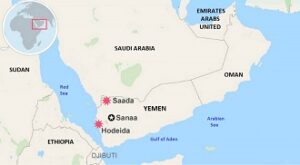 would set the Middle East region on fire is little by little confirmed and escalated, the bombings carried out by Western forces (USA, United Kingdom and Holland) in the Yemen region, where the extremist Houthi movement has its bases. The group is aligned with Iran, and the region is one of the poorest on the planet, and the Houthis maintain control over international flag ships that sail through the Red Sea, a strategic location for military forces in the region (see map).
would set the Middle East region on fire is little by little confirmed and escalated, the bombings carried out by Western forces (USA, United Kingdom and Holland) in the Yemen region, where the extremist Houthi movement has its bases. The group is aligned with Iran, and the region is one of the poorest on the planet, and the Houthis maintain control over international flag ships that sail through the Red Sea, a strategic location for military forces in the region (see map).
In the distant past it became part of the Kingdom of Sheba, more than a thousand years ago, being mentioned even in Genesis, and also in the Quran, more recently because it had more rain than other regions of Arab countries, it had good agriculture, with coffee plantations.
This is where the type of Arabic coffee comes from, and it came to be called Happy Arabia along with Oman in the period when sedentary tribes developed an agricultural economy.
It came to be divided into North and South Yemen, a period in which one region became communist dominated, but was reunified again and during the Arab spring the country entered into great political and social instability, plunging into a bloody civil war, which according to UN data left 22 million people in a vulnerable situation.
The US and UK military incursions in the region increase tension with Arab countries and could provoke an even greater military escalation in the region. Another source of tension was the election in Taiwan of the Democratic Progressive Party (PDP) candidate, Lai Ching-te, 64 years old, he achieved 40.1% of the votes against Hou Yu-ih (Koumintang, KMT) with 33.5 % and Ko Wen-je (Taiwan People’s Party, PPT) with 26.5%, his election represents the approval of a nationalist policy contrary to China, Lai was vice-president of the current president.
The escalation of the war in Ukraine follows, where winter favors the “winter general”, due to the difficulty of moving and maintaining troops across Ukraine in cold regions, Russia has carried out intense bombings in several cities using the air force.
The crisis in Israel has completed 100 days since the October 7th attack by Hamas, and is now driven by attacks by Hezbollah that are supported by Iran, which has declared itself as having no role in the attacks that started the conflict.
The situation of belligerence across the planet is intensifying, the American elections will be held this year in November and the parties are already using war situations as a campaign.
Non-things and subjectivity, the distorted eidos
Subjectivity comes from idealism that judges Being separate from things, thus only being if projected onto objects, but the Greek “eidos”, from which nascent idealism came, there was no such separation, both in Aristotle’s 4 causes: material, formal, efficient and final, as well as in the theory of Platonic ideas, which is the essence and which we have already related to the thing.
separate from things, thus only being if projected onto objects, but the Greek “eidos”, from which nascent idealism came, there was no such separation, both in Aristotle’s 4 causes: material, formal, efficient and final, as well as in the theory of Platonic ideas, which is the essence and which we have already related to the thing.
Those who think the world is immersed in eroticization are mistaken, be it the world of fantasy, that which comes from works of fiction, from children’s imagination and from looking with hope at a better future, today in an increasingly worrying present, Chul- Han writes like this:
“Without fantasy, there is only pornography. Today, the perception itself has pornographic features. It occurs as an immediate contact, even as a copulation of image and eye. The erotic occurs in the blink of an eye” (Han, 2022), that is, it is precisely its opposite, we are in the existential void, in the denial of Being and in it only pornography remains, as a degradation of Being.
Quoting Barthes, Hul-Han clarifies the part of the piece that is: “Absolute subjectivity can only be achieved in a state of silence, the effort to achieve silence (closing the eyes means making the image speak in the silence). Photography touches me when I remove it from its usual blahblablah […] not say anything, close my eyes […]” (Han, 2022) and he is quoting Roland Barthes in his work (photo): The camera lucida (or Lucid, depending on the translation).
Photography is therefore a way of perpetuating silence, the desire of many to take photos as an individual act is to remove it from everyday life and insert something that is eternal, while the public exposure that the digital universe has allowed is to return it to the “ usual blahblabla”, says the author: “The disaster of digital communication arises from the fact that we don’t have time to close our eyes” and maybe he doesn’t know but this is even physical, by not blinking our eyes we should use eye lubricants if We expose it for a lot of time on screens.
“Noise is both acoustic pollution and visual pollution. It pollutes attention” (Han, 2022) and citing Michel Serres says that this instinct is of animal origin, as dogs, tigers and other animals that urinate to demarcate land, pollute with their stench to inhibit other animals from approaching.
Allowing others to approach is not demarcating territory. Jesus’ biblical response to the initial contact of two new disciples is wise (John 1:38): “Jesus asked: “What are you looking for?” They said, “Rabbi (which means: Master), where do you live?” and he replied: “Come and see” and they went and stayed with Him, because he did not demarcate ground and did not close himself.
The logic of silence is contrary to noise, which does not just mean the pollution of an audible sound, but a complete void capable of containing and receiving the Other.
Han, Byung-Chul (2022) Não-coisas : reviravoltas do mundo da vida , transl. of the Rafael Rodrigues Garcia. Brazil, Petrópolis, RJ: ed. Vozes.
The escalation of wars
Although it cannot yet be declared a world 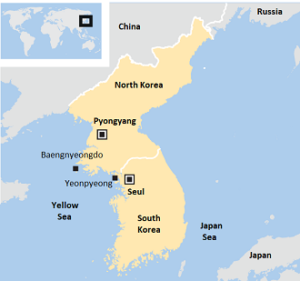 war, the interference of Russia and the United States in several wars on the planet is already open and declared, Ukraine, on strong air attacks in all regions, issued a warning this Monday about these attacks, in Palestine the news They say that over 70% of the territory is uninhabitable due to the war.
war, the interference of Russia and the United States in several wars on the planet is already open and declared, Ukraine, on strong air attacks in all regions, issued a warning this Monday about these attacks, in Palestine the news They say that over 70% of the territory is uninhabitable due to the war.
Tension continues in the East, the North Korean dictator considers himself at war with the United States and on Saturday (06/01) more than 60 artillery shots were observed on the border with South Korea, tension in the area is growing, and there are American ships nearby.
Kim Jon-Um’s motivation was the naval exercise near the Baengnyeongdo and Yeongpyong islands, a border region between the Koreas (map above) although North Korea’s response could be thought of as defensive, Kim’s declaration was of open war with the In the USA, the warmongering stance of conservative South Korean president Yoon Suk-yeol strains relations with North Korea, which calls him a “gangster”.
The United States does not rule out open intervention in Eastern Europe, China maintains reservations, but always declares that the island of Taiwan is a rebel province and considers it part of Chinese territory, it is a declaration that an inevitable American defense and probable Japan in the area would also mean China entering the war, this scenario is a third world war, and we are on a very fragile threshold of this possibility.
From an economic point of view, the road in the BRICS of countries such as Egypt, Saudi Arabia, Iran and Ethiopia is also a cause of tension, since the Arab countries ally themselves with the socialists.
There is no longer any way to ignore the level of global tension for 2024, although hope will always remain with those who sincerely desire peace, and do not use it as warlike rhetoric.
Happy 2024 and blog line
It is difficult to make a positive assessment of 2023, we expected some positive reaction from humanity in the post-pandemic where many died as a result of the worsening of collateral diseases caused by the coronavirus, we expected more solidarity and respect for human life.
we expected some positive reaction from humanity in the post-pandemic where many died as a result of the worsening of collateral diseases caused by the coronavirus, we expected more solidarity and respect for human life.
Ukraine will start the year with a day of mourning due to the massive attack carried out by Russia that killed 39 people and injured 159 others, most of them civilians, the UN declared the attack “unacceptable” and the United States admits direct intervention in war through its troops, this would in practice represent the beginning of a 3rd. World War.
In addition to this crisis, there is the scourge of war in the Gaza strip and tension between Venezuela and Guyana.
The year is not yet over and this month the blog broke its record number of hits with more than 32 thousand and the new line where we delve deeper into the issue of the noosphere, based on Teilhard Chardin who coined the term, also the crisis of thought (we see that the philosophy is also experiencing a crisis) and which is the origin of the current civilizational crisis and Cyberculture, with ethical and social aspects that are deepened in readings of both the emergence of new technologies (ChatGPT, Bard, Azure, etc.) that enter the Era of Generative AI, in the LLM (Large Language Model) model.
The complex scenario requires reading a few authors who detect the golden thread of the current crisis, the idealistic model that comes from the dualism of Ancient Greece (being is and non-being is not), the centralizing and monopolizing state model (even the liberal model that grows in some countries continues to dictate centralized theories and models) and whose crisis affects the social body, culture and even religion where there is no shortage of false prophets, soothsayers and apocalypticists, this appeal grows depending on the severity of the time.
We leave a breath of hope, of certainty that it is possible to emerge from a crisis with balance, responsibility and a dispassionate look at problems, passion for life yes, but not that of fanatics and saviors of the country who contribute little or nothing to humanitarian and responsible for the human future.
2024: wrath or peace, hope
In 2023 we saw an escalation of wars: the war in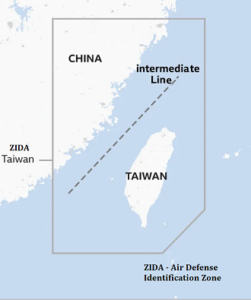 Ukraine intensified, after a terrorist attack by Hamas in Israel, the war there broke out and intensified, the threat of a dispute between Guyana and Venezuela which is now returning to the issue of sending from an English warship to the area.
Ukraine intensified, after a terrorist attack by Hamas in Israel, the war there broke out and intensified, the threat of a dispute between Guyana and Venezuela which is now returning to the issue of sending from an English warship to the area.
The climate is far from being seen with possibilities of peace, in Ukraine, Russia carried out intense attacks at the end of the year and Poland accuses that there were missiles from Russia that violated its airspace, Hezbollah began an escalation of attacks on Israel, and Venezuela says it will respond to the British warship with “defensive” military action.
As if that weren’t enough, the election now in January in Taiwan puts pressure on China since conservative parties are in the lead and the defense of the territory that China considers its province is one of the mottos for the election and the provocations in Taiwan’s territorial waters are frequent (photo).
There is always hope, there are many forces that seek to demonstrate the senselessness of wars, the deaths of innocent people, the immense damage to national economies, and the first thing that is lost in all wars: the truth about the real interests in conflicts , are never what they proclaim: interests in defending “the people” and the most fragile who are precisely the biggest victims.
In the midst of the great conflict, what can happen is what they try to hide: the great clearing of consciences, not only collective ones, but mainly individual ones, countries and economies in ruins, poverty everywhere and on an individual level, what we are and what that we do around our personal conscience in the face of serious situations around us.
Although my personal hope is small in relation to war, it is great in relation to the individual plan, in great conflicts and great scourges, great men and great leaders appear who march in the opposite direction to the powerful and arrogant.
Those who have experienced great scourges and conflicts are those who witness the horror of wars.
Confidence and humility
In moral philosophy there are two types of trust: trust, which is characterized by the deepest interpersonal relationship, which involves good will and vulnerability, and reliability, a more basic type of trust that refers to the functioning of the world and things.
trust, which is characterized by the deepest interpersonal relationship, which involves good will and vulnerability, and reliability, a more basic type of trust that refers to the functioning of the world and things.
A good interpersonal relationship cannot be established without respect, and respect requires humility, simplicity and true relationships. Reliability also involves humility in learning how the world and things work and finding balance in social relationships.
There is an epistemological concept that works on the issue of trust, it involves testimony, it helps knowledge both in personal relationships and in reliability.
Interpersonal conceptions propose a use of the concept of trust based on analogies, and can be applied to epistemological debates without neglecting the moral issue.
This neglect due to an excessively objective and even positivist conception that still strongly influences epistemic approaches is common. An interesting proposal to be analyzed is from Richard Foley (2001).
The use of moral concepts in epistemology (LOCKE, 1975; CHISHOLM, 1966) worked in moral philosophy to resolve epistemic questions, but it is questionable whether the simple reduction of epistemic concepts to moral is valid, Firth (1978) defends the irreducibility of epistemic concepts , saying that although they can be conceived in an analogous way, and may even be similar, they are not irreducible to each other, which can cause theoretical confusion.
So because they are analogous and relevant, because many of our daily beliefs (not necessarily objectively scientific concepts) are acquired by the speech acts of other human beings in everyday relationships, the problem then is precisely knowing how to accept these speech acts as epistemic sources, as they are in different cultures and on a large social scale.
Foley uses the concept of self-trust, but the relationship we establish with our own faculties is a relationship of reliability. If we look for the origins of both concepts, we will find considerable differences between rely and trust, but they are used as synonyms and ignore the differences.
Foley’s mistake is precisely because he disregards the moral characteristics of trust, and it is important to be studied because of this, in everyday life we forget that trust involves moral aspects, including a fundamental one, which is humility in recognizing the speech of the Other.
CHISHOLM, R. (1966) Theory of knowledge. Englewood Cliffs: Prentice-Hall.
FIRTH, R. (1978) Are epistemic concepts reducible to ethical concepts? In: GOLDMAN, A. I.; KIM, J. Values and Morals. Dordrecht: D. Reidel.
FOLEY, R. (2001) Intellectual trust in oneself and others. Cambridge, New York: Cambridge University Press.
LOCKE, J. (1975) An essay concerning human understanding. Oxford: Clarendon Press.
Wars, narratives and cruelty
It was scary that in times of pandemic there were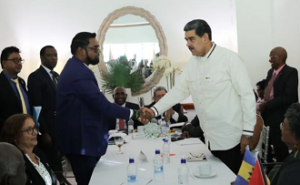 groups, people and even leaders who cared little about the sudden death of people who were infected by the COVID-19 virus. An increase in solidarity and compassion was to be expected, but it did not happen.
groups, people and even leaders who cared little about the sudden death of people who were infected by the COVID-19 virus. An increase in solidarity and compassion was to be expected, but it did not happen.
Now with the wars that are escalating and reaching countries that orbit around ideologies, they awaken a feeling of hatred, revenge and terror that borders on psychopathy, not having sympathy for the brutal death of a human being, whoever it may be, has a certain psychopathy.
There is no shortage of narratives, even apocalyptic fatalism, as if human evil was justified by some sincere religious feeling, everything that is not love and compassion should never be linked to a divine connection or a sincere humanitarian feeling.
Chinese social media giant Tik Tok released data on fake accounts that spread disinformation about Russia’s war with Ukraine last Wednesday (12/13) in an attempt to “artificially amplify pro-Russian narratives,” the report says verbatim .
The site directed videos to Ukrainian, Russian and European users, falsely labeled as official news outlets, seeking to confuse the real data of the war.
Also regarding the war against Hamas, the data released is not always what witnesses, not only pro-Palestinian, but also bodies present for humanitarian aid in Gaza, report that there are deaths of civilians and cruelty also against the population, which is not all Muslim and not pro-Hamas, does not in any way mean justifying Hamas’ terrorist acts, but simply establishing the truth.
Fortunately, the conversations between the presidents of Venezuela and Guyana (photo), despite there being no agreement on the disputed territory of Essequibo, the dispute was agreed in the diplomatic field without involving military forces, we hope that the word will remain.
The United States once again moves maritime forces close to North Korea due to intercontinental ballistic missile fire, which caused an immediate American reaction.
The year-end scenario is worrying due to the forces involved, so far countries such as Iran, Turkey, Qatar, Syria and Yemen, potential allies against Israel, remain in diplomatic threats, while Arab countries such as Saudi Arabia, Iraq and Egypt still remain in conflict. diplomatic pressure, an all-out war in the region would be catastrophic and trigger a global war.
Smooth the paths
All of reality seems like a huge mess, and in fact it is without a meditative perspective (the vita contemplativa that we posted last week) and without a prophetic vision that goes beyond factual reality, which is almost always dualistic because it only sees through one aspect. guys.
is without a meditative perspective (the vita contemplativa that we posted last week) and without a prophetic vision that goes beyond factual reality, which is almost always dualistic because it only sees through one aspect. guys.
There will be wars, revolutions, people against people, everything that overwhelms false prophets, soothsayers and bad biblical readers, announcers of themselves and not of divine reality.
Yes, the biblical reading is this Mt 24,7-8: “For nation will rise against nation, and kingdom against kingdom, and there will be famines and earthquakes in various places; but all this is the beginning of sorrows” yes, but this “will not be the end” and the reading does not stop there: “many false prophets will arise and deceive many”.
Although we are experiencing a great civilizational crisis, the Bible speaks of the “great tribulation”, all of this is in reality a “straightening of the paths”, as John the Baptist did at the time of the coming of Jesus.
They asked him if he was the Messiah or Elijah (John 1:22-24): “They then asked: ‘Who are you after all?’ We have an answer for those who sent us. What do you say about yourself?’ Then John declared: “I am the voice that cries in the wilderness, ‘Make the way of the Lord plain’” as said the prophet Isaiah”, who prophesied that God would send light and joy through a child , and who would break the “yoke of his burden” (Isaiah 9:4) and would be called “Wonderful, Counselor, Mighty God, Everlasting Father, Prince of Peace” (verse 6).
It is indeed a civilizational crisis, models of society in shock, dangers of wars in limits and proportions never imagined, but all of this is also “smoothing the paths of the Lord”, the coming of a New Civilization, not that of false prophecies, but the kingdom of peace.
Beware of false prophets, with promises of paradise that do not come true, they also feed on crises, cruelty and wars, but do not propose peace and justice, or they don’t build them.
The last prophet and his culture
John the Baptist was the son of Elizabeth, married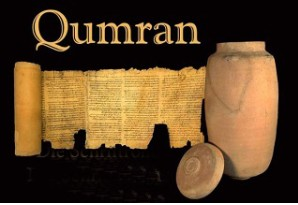 to Zechariah and cousin of Mary, who upon receiving the sign from an angel that she would conceive goes to visit her, the biblical narrative hurriedly says, but also because the angel tells her that she is full of doubts: “her cousin, who was barren, conceived in old age” (Luke 1:36-40), a passage full of interpretations, but that’s for later.
to Zechariah and cousin of Mary, who upon receiving the sign from an angel that she would conceive goes to visit her, the biblical narrative hurriedly says, but also because the angel tells her that she is full of doubts: “her cousin, who was barren, conceived in old age” (Luke 1:36-40), a passage full of interpretations, but that’s for later.
Who John the Baptist was was better clarified in the Dead Sea Scrolls (see reference) found in the Dead Sea, very recently, but which biblical readers and exegetes completely ignore.
Many controversies arose from the Qumran manuscript, including that Jesus was actually an Essene, another that some fled to India and founded communities there with their principles, some of these manuscripts were inside clay jars and spoke about the life of Jesus Christ and talked about the importance of cures with alternative medicine and the importance of vegetarian culture.
The Essenes also defended unity and peace, as it was a period of division among the Jews, several had contact with Jesus and are present in biblical passages, and thus already had a different cult than the Sadducees and Pharisees.
The Sadducees were people from high society, members of priestly families, educated, rich and aristocrats; The Pharisees did not believe in life after death and therefore said nothing about their eschatological vision (of the beginning and end), becoming more concerned with Jewish rules and “laws”.
The zealots, others who joined Jesus, rejected paying tribute to the Roman empire, on the grounds that such an act was a betrayal against God, among Jesus’ apostles, Simon was a zealot and Judas, the traitor too, and also the late apostle Paul of Tarsus refers to himself as a religious zealot (Acts 22:3; Gal 1:14).
This gives a more cultural and political context about Jesus and his apostles, it does not take anything away from their divinity, but it explains the controversies and contradictions with the more orthodox Jewish culture of the time.
Regarding this controversy, the Jewish academic Dr. Israel Knohl, president of the Biblical department at the Hebrew University of Jerusalem, and guest at the universities of Berkeley and Stanford, presents in his book: “The Messiah Before Jesus”, writes based on these parchments, the thesis that around the year of Jesus’ birth, a supposed messiah Menahem, the Essene, had died in circumstances similar to those of Jesus and this was known to Jesus.
Controversies aside, it does not weaken the biblical narratives of Jesus and John the Baptist, but it clarifies cultural and historical aspects better.
«The Weirdo Cult That Saved the Bible» (in english). Slate. Consulting in July of 2015.

